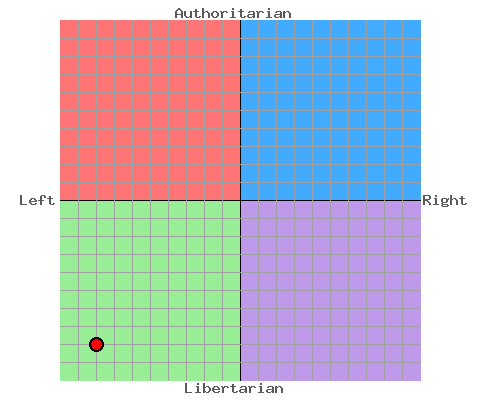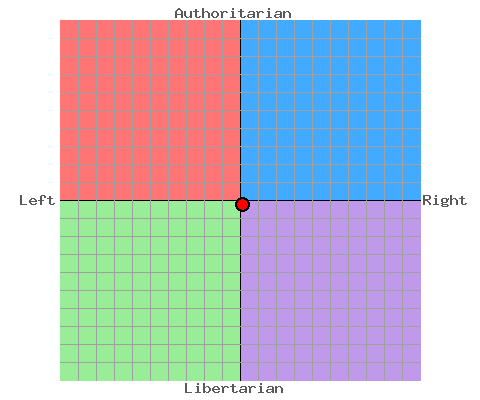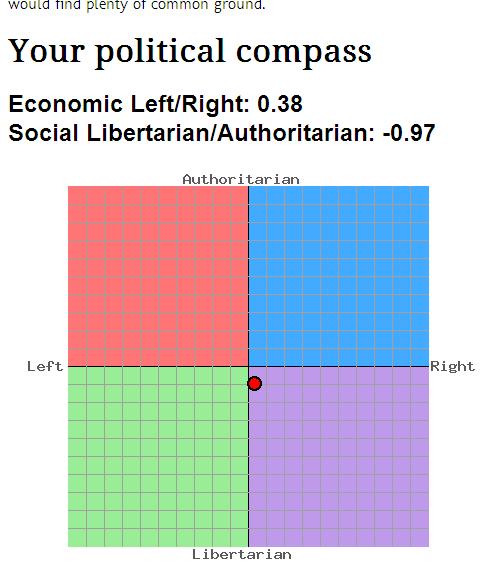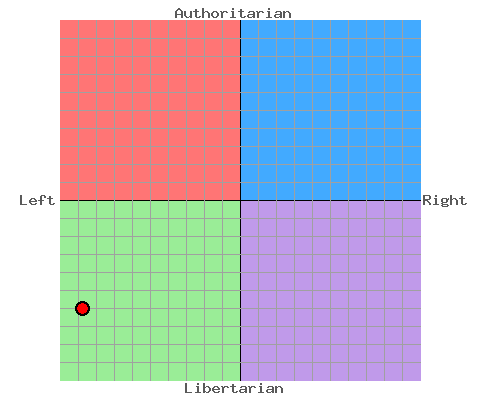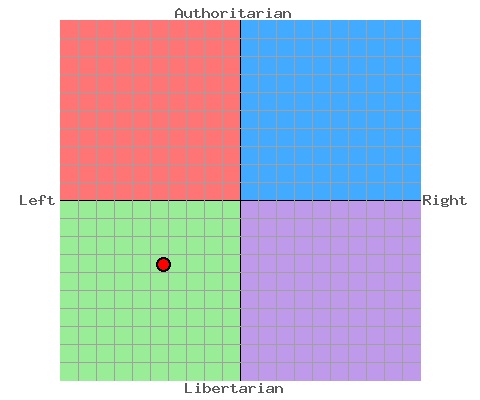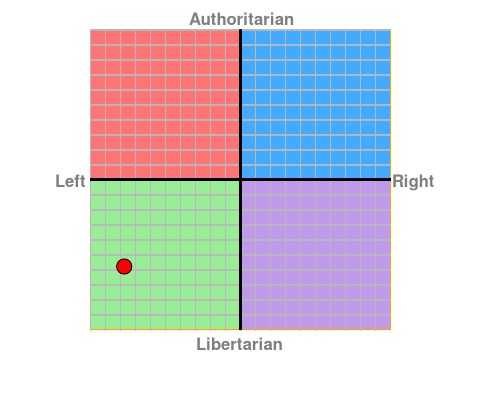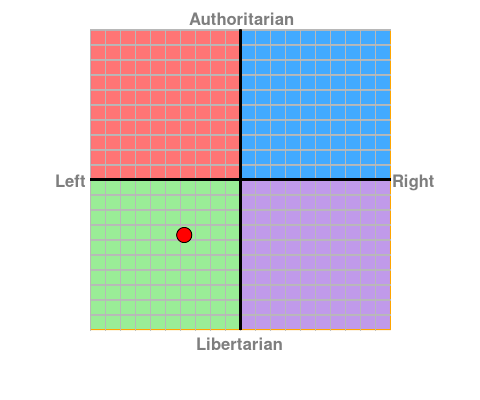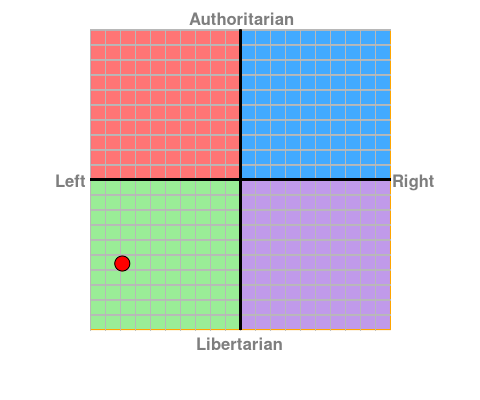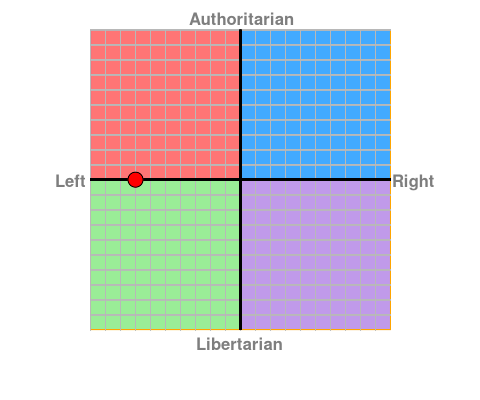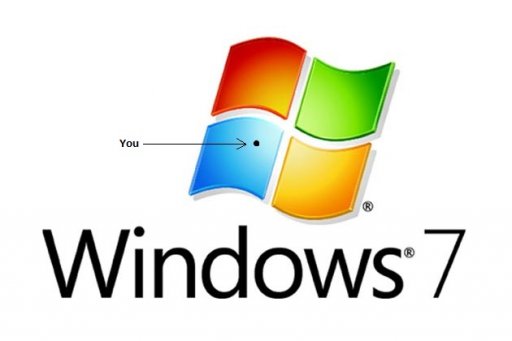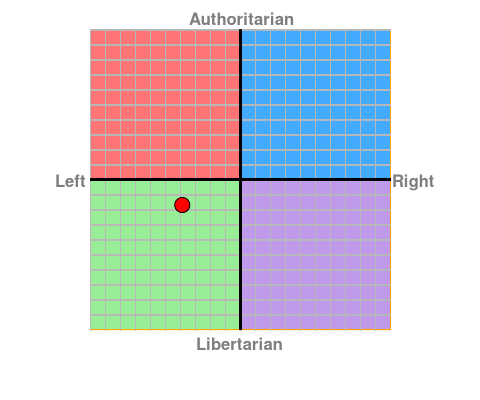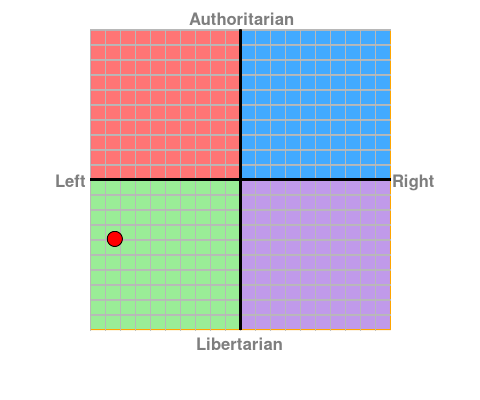You are using an out of date browser. It may not display this or other websites correctly.
You should upgrade or use an alternative browser.
You should upgrade or use an alternative browser.
Debunkers, Skeptics and Conspiracists: Where are you on the political compass?
- Thread starter Mick West
- Start date
Larrydalooza
New Member
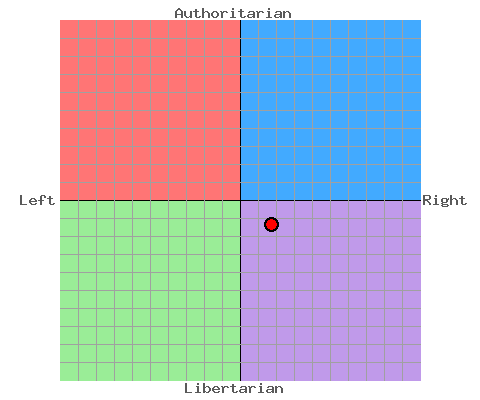
Business owner. Productivity is the foundation of civilized society.
WeedWhacker
Senior Member
Guess it's time to "chime in":

Last edited by a moderator:
Sgt.Tinfoil
Member
WeedWhacker
Senior Member
THANKS to the (un-named moderator).....
"Love Ya, Mean It!"
ALL in jest.....of course!!! Really, true thanks...(had to have a bit of humor, though...just to liven the place!).
WeedWhacker
Senior Member
Holely (see what I did there?) Molely (again? I make myself laugh)....
Can't recover....I'm out.....
(edit) BUT....wOw!!! AND I thought I was "special". Congrats!!!
Jason
Senior Member
Special how? LOL.... Honestly, I would say about 95% of the charts I've seen have all been in the lower left "green" area of the chart. Nothing special about that, even @Joe ended up in the green area, LOL...Holely (see what I did there?) Molely (again? I make myself laugh)....
Can't recover....I'm out.....
(edit) BUT....wOw!!! AND I thought I was "special". Congrats!!!
WeedWhacker
Senior Member
Special how? LOL.... Honestly, I would say about 95% of the charts I've seen have all been in the lower left "green" area of the chart. Nothing special about that, even @Joe ended up in the green area, LOL...
Funny, that.
Jason
Senior Member
What I would like to know is how many people were "completely" honest when filling out that chart. Who worried about what others would think, and who didn't give a sh*t...Funny, that.
Jason
Senior Member
It wasn't directed to anyone on this forum, I meant in general. Some if not most of the questions only allow for one answer unless you really don't care about society or people....Hnnnnnngh!!!
Well I certainly didn't.
WeedWhacker
Senior Member
I was. Completely honest, to the questions as posed. Some of the questions could have been better phrased, though!
"I'm coming for you!...to understand the political spectrum."...."PHRASING!!!"
(From "Archer" ....and, this is meant as humor, so apologies in advance):
....and, this is meant as humor, so apologies in advance):
AND yes.....I "lean" to the left. I mean, my tailor asks which way, and I say "To the left"....and, well......
"I'm coming for you!...to understand the political spectrum."...."PHRASING!!!"
(From "Archer"
AND yes.....I "lean" to the left. I mean, my tailor asks which way, and I say "To the left"....and, well......
Danver
Member
I was. Completely honest, to the questions as posed. Some of the questions could have been better phrased, though!
"I'm coming for you!...to understand the political spectrum."...."PHRASING!!!"
(From "Archer"....and, this is meant as humor, so apologies in advance):
AND yes.....I "lean" to the left. I mean, my tailor asks which way, and I say "To the left"....and, well......
Well its cool. see that the majority of the people on this kind of pages are center left. What is really bad is authoritarian - Totalitarian.
I have always defined myself as a Liberal, from the Right . And I find myself politically correct because I also hate Monopoly -oligopoly ,Corporativism (Facism) and defintely I am against comunism.
Jason
Senior Member
I think most of us are the Dalai Lama to be honest with you, at least with respect to this survey, lol..I am the Dalai Lama. View attachment 8552
Whitebeard
Senior Member
Economic Left/Right: -8.63
Social Libertarian/Authoritarian: -5.59
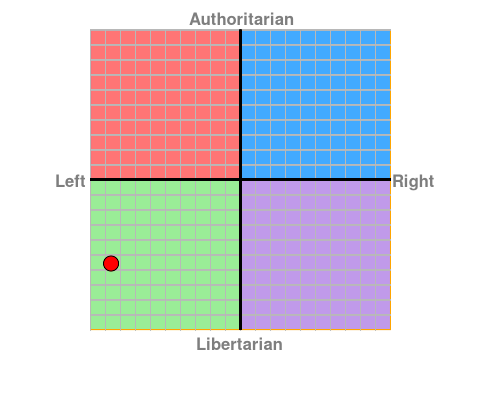
he he, a hard lefty with anarchistic leanings.... thats me
Social Libertarian/Authoritarian: -5.59

he he, a hard lefty with anarchistic leanings.... thats me
Trailspotter
Senior Member.
Me too:Same quadrant but from memory I've drifted slightly right and up from the last time I did it
Ben Harrison
Member
Your Political Compass
Economic Left/Right: -0.38
Social Libertarian/Authoritarian: 0.0
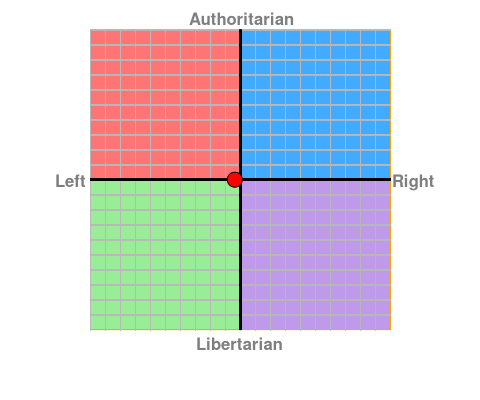
I feel slightly surprised at my results! I've always identified (and voted) as Conservative
Economic Left/Right: -0.38
Social Libertarian/Authoritarian: 0.0

I feel slightly surprised at my results! I've always identified (and voted) as Conservative
Trigger Hippie
Senior Member
Your Political Compass
Economic Left/Right: -4.75
Social Libertarian/Authoritarian: -4.92
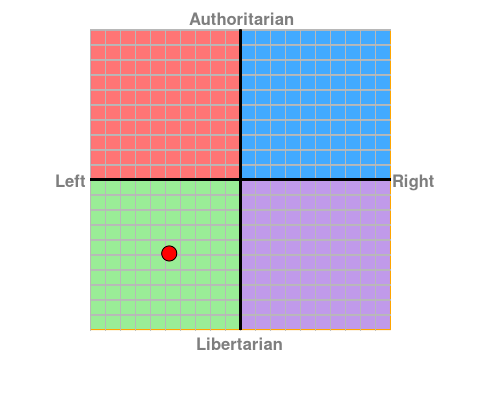
Economic Left/Right: -4.75
Social Libertarian/Authoritarian: -4.92

American Buffalope
Member
Trailspotter
Senior Member.
You are not alone. I think the origin of the coordinates in this diagram is a decoy, the real one is in the centre of the green quadrant. Add 5 to each of your results to reclaim you right wing authoritarian positionStrange, I consider myself more right-wing. That's also the result I commonly get from these kinds of tests. I guess it depends on how the questions are presented..
NoParty
Senior Member.
That something like 90% of these have landed in the green quadrant makes me quite dubious.
Sure, a debunking website attracts a non-random demographic...but I still suspect that this tool must be skewed.
Almost none of our posters are in the top half of the diagram, and the very rare occurrence of someone landing
in the red, blue or purple boxes seems to be just barely.
Disclaimer: I myself haven't taken it yet...partly because of time...but mostly because I'm a big coward...
Sure, a debunking website attracts a non-random demographic...but I still suspect that this tool must be skewed.
Almost none of our posters are in the top half of the diagram, and the very rare occurrence of someone landing
in the red, blue or purple boxes seems to be just barely.
Disclaimer: I myself haven't taken it yet...partly because of time...but mostly because I'm a big coward...
Sure, a debunking website attracts a non-random demographic...but I still suspect that this tool must be skewed.
I tried taking it pretending to be very socially conservative, free-market, right-wing, small government, patriot, but not stupid, and got:
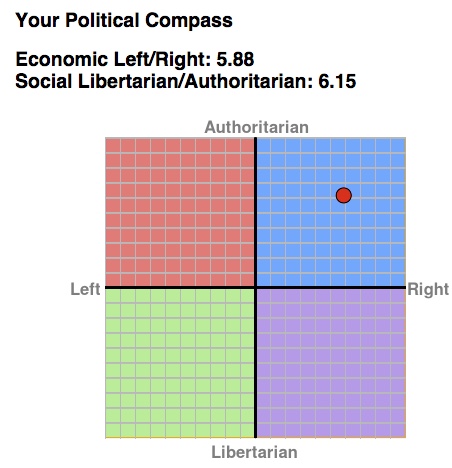
So it's certainly possible to get into other quadrants.
deirdre
Senior Member
I got basically the opposite of munchies. same area in the blue. but the questions were really weird. ...many that I didn't like any of the choices as an answer,That something like 90% of these have landed in the green quadrant makes me quite dubious.
Sure, a debunking website attracts a non-random demographic...but I still suspect that this tool must be skewed.
Almost none of our posters are in the top half of the diagram, and the very rare occurrence of someone landing
in the red, blue or purple boxes seems to be just barely.
Disclaimer: I myself haven't taken it yet...partly because of time...but mostly because I'm a big coward...
and I kept fluctuating between "my" ideals and "realistic" ideals.. meaning what was realistic for global humanity not just me. Oddly my 'realistic ideals' are more liberal bent. but I'm not mega conservative. so I don't know.
NoParty
Senior Member.
Hmmm...then I guess it's a good thing that this isn't a website about politics,I tried taking it pretending to be very socially conservative, free-market, right-wing, small government, patriot, but not stupid, and got:

So it's certainly possible to get into other quadrants.
'cause we'd be making nothing but left turns!
Trailspotter
Senior Member.
Sure, it is possible to get into other quadrants pretending to be somebody else, but that somebody is likely to think differently. You did it before pretending to be Joe and putting him in the blue (#3), but Joe's own test result was in the green, along with the absolute majority of the self-tested metabunkers. As I said before, the origin of the coordinates does not represent the central point of political opinion spectrum, the actual central point appears to reside near the centre of green quadrant.I tried taking it pretending to be very socially conservative, free-market, right-wing, small government, patriot, but not stupid, and got:

So it's certainly possible to get into other quadrants.
Look at their UK General Election 2015 chart that places different UK parties according to how their supporters are supposed to think:
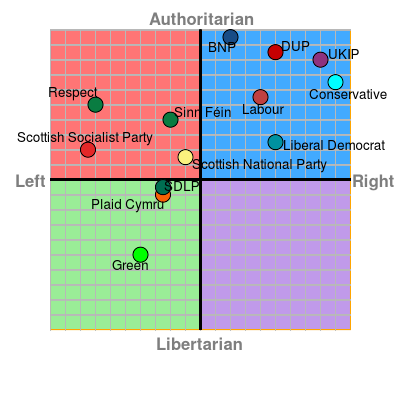
Despite having my results in the green quadrant, I am definitely not a Green Party supporter and doubt that the majority of the UK members here are going to vote for Greens on May 7, 2015.
deirdre
Senior Member
Look at their UK General Election 2015 chart that places different UK parties according to how their supporters are supposed to think:
Auldy
Senior Member.
To me it's a deceptive test. There were some impossible to answer questions imo.
I concur. I think it really needs a "neutral" or "not sure" answer option for all the questions. Not sure if its completely fair to force you to either agree or disagree.
Last edited:
Psychic
Senior Member
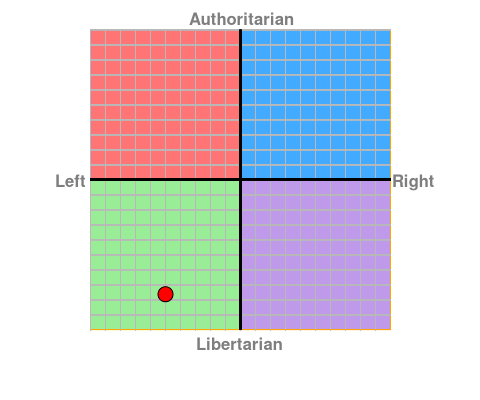
I like to think of myself as centrist... I usually support the major centrist party in Canada (the Liberals) though this time around I'm wavering between the Greens and the NDP (the social democracy party).
In principle I'm more of a social democrat, but in practice I try to avoid blindly dogmatic opinions by reading academic research on the subject in question; in the process, I sometimes find that the centrist or conservative position is better-aligned with the bulk of empirical findings.
However, I don't think it actually matters all that much who's elected, as right-wing governments often wind up leaving very 'left-wing' legacies and vica-versa. For some very brief examples, consider:
Menachem Begin - former PM of Israel; leader of the far-right Herut Party and ex-terrorist - returned the Sinai Peninsula (almost two-thirds of the land under Israeli control at the time) to Egypt in return for the historic peace treaty;
Richard Nixon - former US President; 'conservative' Republican - ended the Vietnam War, established diplomatic relations with communist China, and instituted wage and price controls across much of the economy;
Fernando Cardoso - former president of Brazil; avowed Marxist - sold off SOEs (state-owned companies), encouraged international trade and investment, and eliminated regulations; and (this one's my favourite):
Ronald Reagan! - former US President; demigod to the right wing of the right-wing Republican Party, and inspiration of the uber-conservative Tea Party! - left as his legacy a very soft foreign policy that favoured engagement and rapprochement with US enemies (at least in his second term; shades of Obama?); increased government spending (both in absolute terms and as a share of GDP); and a sky-high deficit. Reagan left a right-wing legacy as well (deregulation and lower tax rates for the upper brackets) but even there, government revenue (which in the US is mostly synonymous with tax revenue) as a percentage of GDP rose and he was outdone by Bill Clinton (a Democrat) in deregulation.
Latest posts
-
-
Synchronicity - What's your experience of it?
- Latest: Todd Feinman
-
-

